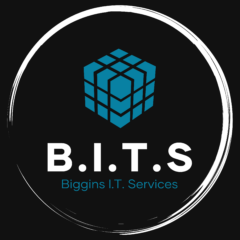Laptops vs Desktops: Navigating the Digital Divide with a Glimpse at Chromebooks
Category : Uncategorized
In the ever-evolving world of technology, the age-old debate between laptops and desktops continues to spark discussions among users. Each option comes with its own set of advantages and considerations. In this blog post, we explore the pros and cons of laptops and desktops, shedding light on the distinctions that can help you make an informed decision. Additionally, we’ll touch upon the rising star in the computing landscape – Chromebooks.
1. Laptops: Portability Meets Productivity
Pros:
- Portability: The most apparent advantage of laptops is their portability. Carry your computing power wherever you go, from coffee shops to boardrooms.
- All-in-One Design: Laptops integrate the essentials – display, keyboard, and touchpad – into a single, compact unit, offering a streamlined user experience.
- Battery-Powered: With the convenience of battery power, laptops provide the flexibility to work or browse without being tethered to an electrical outlet.
Cons:
- Limited Upgradeability: Laptops often have limited upgrade options for components like RAM or graphics cards.
- Compact Keyboards: Some users find the compact keyboard layout on laptops less comfortable for extended typing sessions.
2. Desktops: Power and Customization at Your Desk
Pros:
- Raw Power: Desktops typically offer more computing power than laptops, making them ideal for resource-intensive tasks like video editing or gaming.
- Upgrade Flexibility: Desktop users enjoy greater flexibility in upgrading components such as graphics cards, RAM, and storage.
- Ergonomics: Larger monitors and customizable peripherals contribute to a more comfortable and ergonomic workspace.
Cons:
- Immobility: The primary drawback of desktops is their lack of portability. They are designed to stay put on your desk.
- Separate Components: Unlike laptops, desktops consist of separate components, requiring more space and setup.
3. Chromebooks: A Different Breed in the Digital Ecosystem
Pros:
- Simplicity and Speed: Chromebooks are known for their simplicity and quick boot times, offering a streamlined and efficient user experience.
- Security: Chromebooks are designed with security in mind, with automatic updates and built-in virus protection.
- Affordability: Chromebooks are often more budget-friendly compared to traditional laptops or desktops.
Cons:
- Limited Offline Functionality: Chromebooks rely heavily on an internet connection, and some applications may have limited offline functionality.
- App Compatibility: While the Chrome Web Store offers a variety of apps, some users may miss the extensive application library available on other platforms.
4. Choosing the Right Fit for You
Ultimately, the choice between laptops, desktops, or Chromebooks depends on your specific needs and preferences. Consider factors such as portability, computing power, upgradeability, and budget when making your decision. Whether you’re a digital nomad, a power user, or someone seeking simplicity, there’s a computing solution tailored to your lifestyle. So, weigh the options, explore the possibilities, and find the device that seamlessly integrates with your digital journey.
